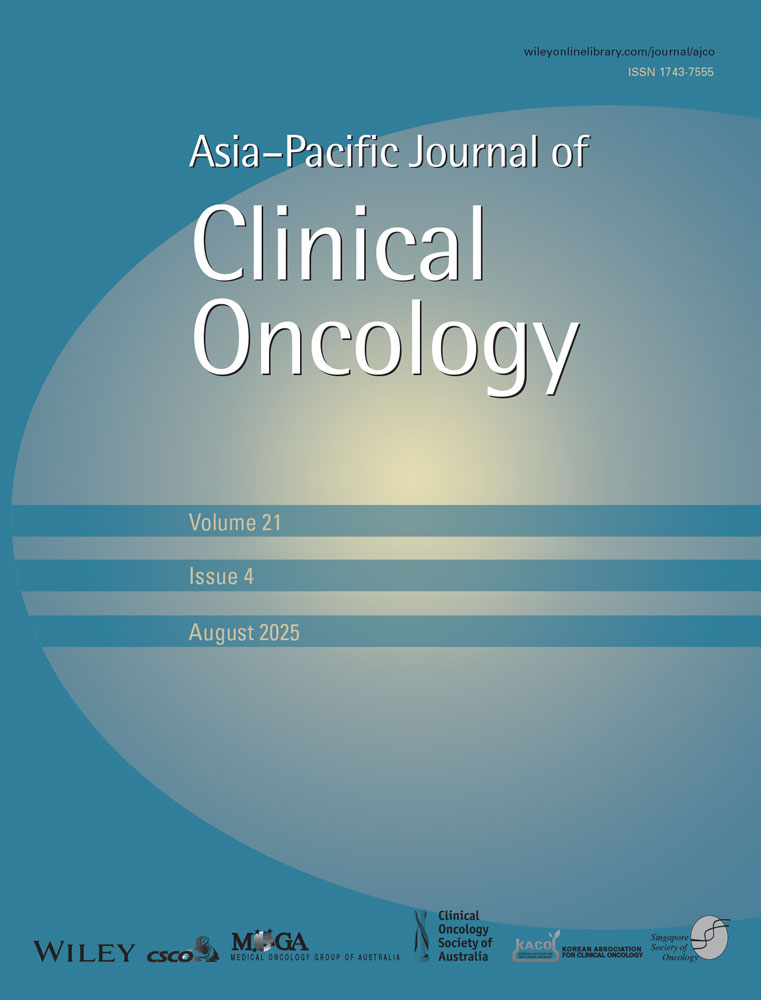Long-term Longitudinal Observation of Lenvatinib-associated Adverse Events in Patients With Unresectable Radioiodine-refractory Differentiated Thyroid Cancer
ABSTRACT
Aim
To characterize the long-term adverse events (AEs) observed in patients who received lenvatinib.
Methods
We longitudinally assessed long-term AEs in patients with advanced or metastatic radioiodine-refractory differentiated thyroid cancer who had received lenvatinib for more than 1 year. AEs were graded according to the National Cancer Institute Common Terminology Criteria for AEs. Grade 2 AEs were defined as intolerable if a patient complained of distress.
Results
Seventeen patients were treated for more than 1 year. The median age was 69 years. The median duration of lenvatinib treatment was 40 months. Notable intolerable grade 2 and 3 AEs were developed in the following order: hypertension (median day 18; range, day 1–131), diarrhea (median, day 27; range, day 4–1205), hand-foot skin reaction (median, day 33; range, day 20–582), platelet decrease (median, day 57; range, day 15–427), proteinuria (median, day 72; range, day 18–1772), anorexia (median, day 319; range, day 57–1541), and chronic kidney disease (CKD) (median, day 715; range, day 274–1296). After 2 years of administration, the decrease in estimated glomerular filtration rate became remarkable. Grade 3 hypertension occurred in 94.1% (16/17) of patients, of whom 66.8% (11/16) developed intolerable grade 2 proteinuria at a median interval of 35 days. Of these patients, 54.5% (6/11) developed intolerable grade 2 CKD at a median interval of 245 days.
Conclusions
This longitudinal study revealed which AEs appeared and when. The findings provide useful information about when and which AEs we should be attentive to during daily practice.
Conflicts of Interest
The authors declare no conflicts of interest.
Open Research
Data Availability Statement
The authors confirm that the data supporting the findings of this study are available within the article and its Supporting Information.




